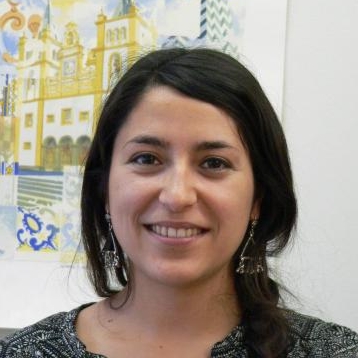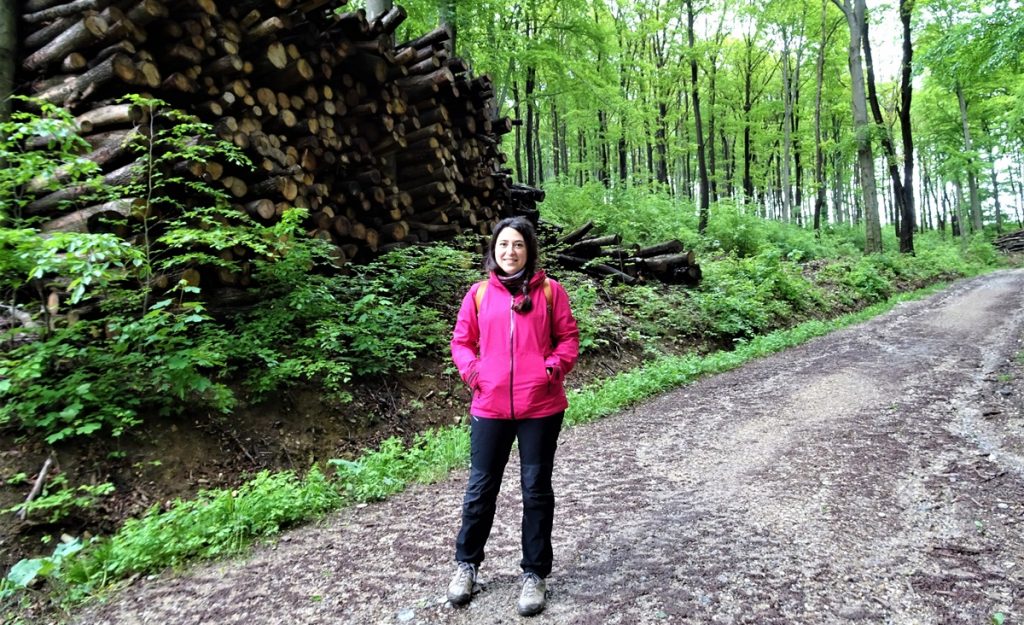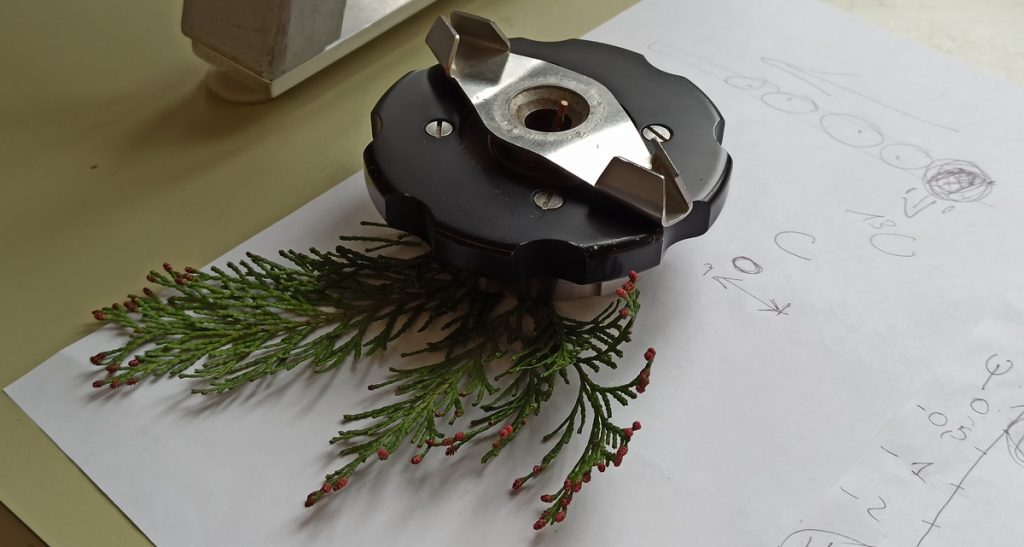Luciana Jaime: when a scientific mobility stay reverses perspective
A self-imposed condition set by CREAF postdoctoral researcher Luciana Jaime when she embarked on a two-month scientific visit to the University of Natural Resources and Life Sciences (BOKU) in Austria in spring 2023 was that it should be punctual and have a guaranteed return date. She was convinced of the value of the scientific team she wanted to join for 2 months and of the learning that the stay would entail but, at the same time, she was absolutely certain that the visit was a return trip. Her scientific and personal life was settled in Barcelona and a change was hardly negotiable. Fortunately, the solidity of certain convictions widens, enriches and becomes more ambitious, while maintaining its original consistency. This must be one of the experiences through which we grow. And this is the path taken by researcher Luciana Jaime on her scientific stay as a Severo Ochoa visiting researcher to a leading European centre for forest pathology.
The young scientist's story shows an exciting before and after, both professionally and vital. "The two-month experience at BOKU has changed my approach. It has allowed me to take a broader outlook, as I have identified the opportunity to continue my own line of research", she explains. It is also good news that the scientific visit has strengthened her will to devote herself to research: "My intention is to continue my research career," she says, while admitting that the experience has become a way to "test the waters" and consider applying for a longer stay at the Austrian centre.

"The two-month experience at BOKU has changed my approach. It has allowed me to take a broader outlook, as I have identified the opportunity to continue my own line of research"
LUCIANA JAIME, postdoctoral researcher at CREAF.
The area of scientific knowledge Luciana Jaime has broadened in Austria focuses on the effects of forest pests on forests, largely due to climate change, which at CREAF she focuses on the Mediterranean and Pyrenean region within the team of researcher Francisco Lloret. For this reason, a year ago she took advantage of a working session in Vienna (Austria) of the Resonate project to meet another BOKU group. And she also mentions the precedent of a small project of her own, launched in the summer of 2023 together with the researcher Jordi Margalef.
A day at BOKU
The proposal that the CREAF postdoc sent to Sigrid Netherer and Martin Schebeck –principal investigators of the group she was visiting– was to reinforce her learning in manipulative experimentation. And the response has been a global vision and experience. Therefore, it can be said that the commitment to research mobility has been revealing, both on the part of the young researcher and of the research group that has hosted her. "They were not used to this type of visit, but it worked," says Jaime with gratitude.
"A mobility stay is a very good opportunity to test the fit in new research groups, because experience tells me the people you surround yourself with to do science are crucial"
The Austrian university group has given priority to showing her as many methodologies, research teams and work dynamics as possible. This means that she has accompanied researchers to do field work, has been one more in the presentation of results of a scientific meeting, has known the day-to-day life of a department head, has become an audience of an internship session or has known the postdoctoral research of BOKU. Language was never a boundary, because the usual German changed to English when Luciana Jaime shared sessions with colleagues.

The young postdoc from CREAF knew Sigrid Netherer as an author of scientific articles, as she coordinates the research line on scolitid insects at BOKU, although they had not had any contact. Nor did she personally know Martin Schebeck, the other group’s head, who is in charge of the fungal research field. "Sigrid Netherer seemed to me to be a very valuable scientist in her field and welcomed me with open arms. That's why a mobility stay is a very good opportunity to test the fit in new research groups, because experience tells me that the people you surround yourself with to do science are crucial”.
A burst of ideas
The before and after of the CREAF postdoctoral researcher's scientific growth is evident when she explains that the two-month stay has helped her to think out of the box. In her case, this has involved innovating when formulating questions, learning working methodologies from scratch, as well as practising live to understand many of the articles she had read. "I have learned a lot about the biological cycle of scolitid insects," she says, "it has helped me to learn about manipulative experiments in which you can control what happens, to see the inner side of research on the attack of some insects on trees".
The scientific stay has had an impact on being able to think out of the box: to innovate when formulating questions, to learn working methodologies from scratch and to practice in the live laboratory.
After all, Luciana Jaime describes the work at the Austrian centre as "a burst of ideas" that she needs to give shape to, to answer questions about the tree's resistance to attacks by scolitid insects and, for example, about the tree's chemical reactions to the first attack. "Climate change will get worse," she says forcefully, "so the sooner we think about how to avoid these insect-related disturbances and adapt, the fewer problems we will have in the future”. In this particular case, the Austrian university is working closely with forest owners' associations to find solutions linked to forest management.

The Austrian forest near Vienna is biologically and geographically far from the Mediterranean and Pyrenean forest studied by CREAF, but complementarity has been a strong point. The researcher admits that the forest regimes and systems between the two locations are very different, that insect pests are a daily occurrence in the Austrian forest where, on the other hand, a fire is an unusual drama. "I think that if I want to continue researching forest pests, Central Europe and the Czech Republic are two good locations," concludes Luciana Jaime, with the naturalness of someone who has just realised that anything is possible and that it is always infinitely more interesting to think big, as a first choice.







